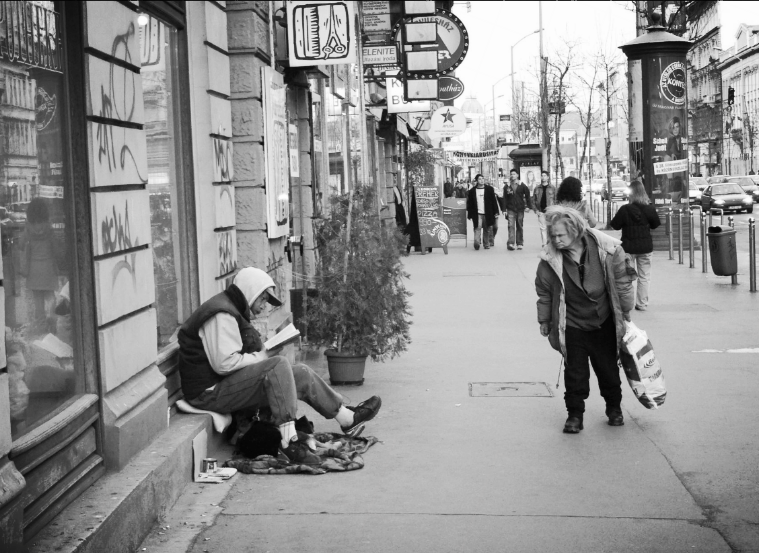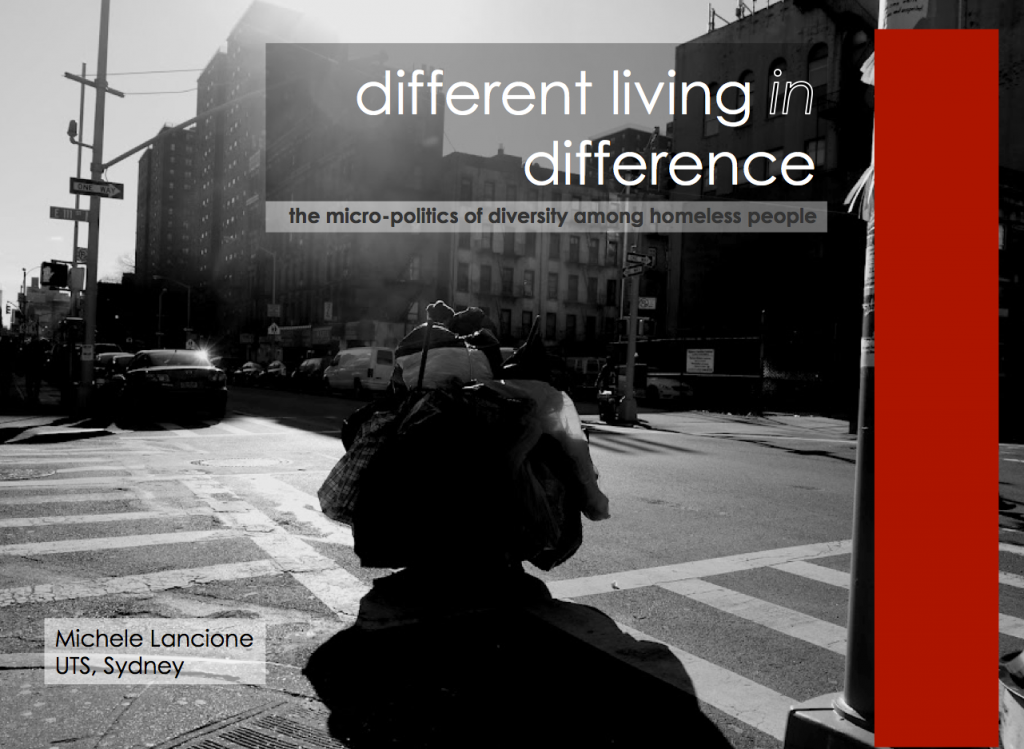
It took me a long time but finally is here… my Transactions’ paper on how homeless people negotiate their differences at the margins. The paper shows how the management of the urban poor carries effects on the ways homeless people encounter and negotiate their cultural, societal and ethnic differences. It does so providing a post-human and affect-oriented understanding of the assemblage of difference, which means, in other words, that small urban devices, discourses and atmospheres play a pivotal role in the emergence of positive and negative encounters. The paper introduces the notion of ‘racialised dissatisfaction’ to show how racialised encounters among homeless people can be negatively mediated by services made of precarious material artifacts, normative blueprint to action and negatively charged affective atmospheres. The paper provides also evidence on how less normative and more empowering services are able to trigger positive a-racialised encounters among the homeless people I have encountered. In this regard the theory and ethnography behind this paper can inform the challenges that European cities are facing today: a positive politics of difference passes through the material and affective ways cities will welcome, or not welcome, their most marginalised populations.
I am thankful to many people that made this paper possible. To Ash Amin and Francesca Governa, for their constant support and mentorship, to Transactions for feedback and support, and to many others – including Jonny Darling and Colin McFarlane – for their encouragements. Below you can read the abstract, while the paper can be downloaded on this website, on academia.edu and on Transactions’ website.
Racialised dissatisfaction: homelessness management and the everyday assemblage of difference
Faced with increased waves of refugees, economic migrants and internal vulnerable groups, the challenge for the contemporary European city is to welcome, assist and manage these populations in ways capable of fostering a positive and productive articulation of difference. The paper tackles this issue by investigating the ways in which difference is perceived, negotiated and performed among Italian and migrant homeless people in Turin, Italy. Through the presentation of detailed ethnographic material, the paper proposes a processual and affective take on the everyday assemblage of race and it questions the role of normative spaces in its making. The notion of racialised dissatisfaction is advanced in this sense, signalling how street-level racism among the homeless poor is deeply connected to the broader machinery of homelessness management and the material and affective components of life on the street. Despite its contextualised ethnographic nature, the paper offers insights that encompass the analysed case and advance our theoretical and empirical understanding of everyday life at the urban margins.


